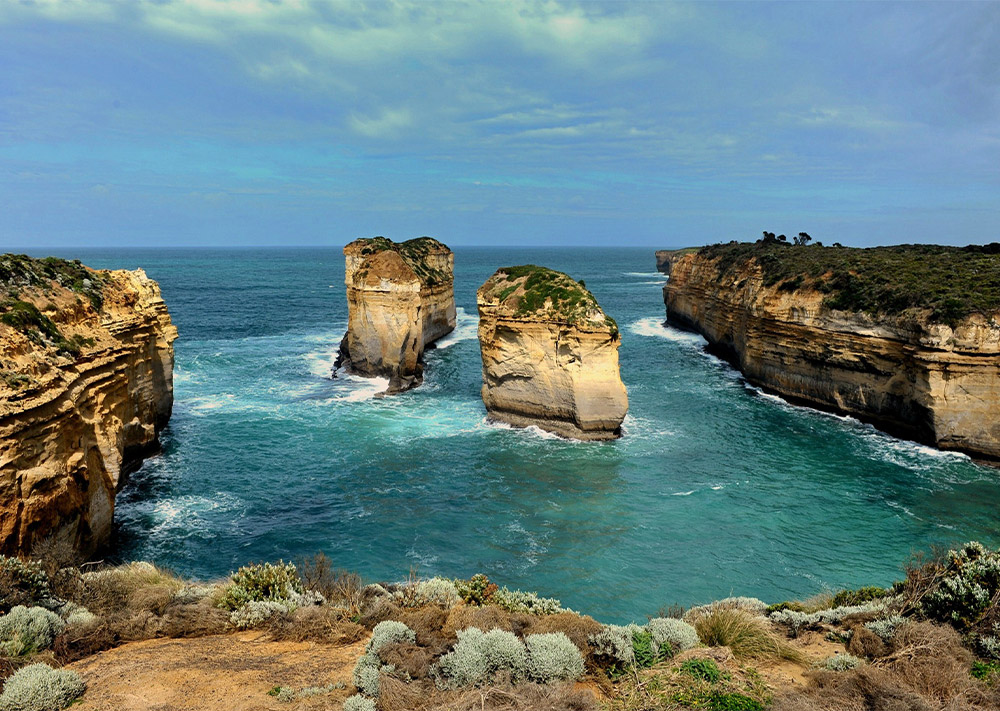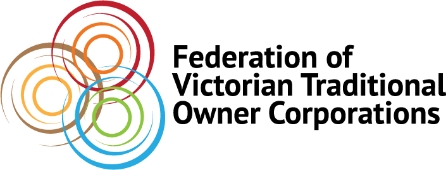In 2022, the Federation, in partnership with Murray Lower Darling Rivers Indigenous Nations (MLDRIN) and the Department of Environment, Land, Water and Planning (DELWP) Aboriginal Water Unit (AWU), worked closely with Traditional Owners to inform Water is Life, supporting the development of Nation Statements, which assert their sovereignty and describe the cultural importance of water to their communities. The inclusion of their Nation Statements in Water is Life shows a significant shift in the way policy is being developed in Victoria.
View the Reports
2022 Water is Life: Traditional Owner Access to Water Roadmap Research Case Studies
2022 Water is Life: Traditional Owner Access to Water Roadmap Submission Research
2022 Water is Life: Traditional Owner Access to Water Roadmap Submission
In March 2021, the Federation worked with the University of Melbourne, MILDRIN and DELWP to release Cultural Water for Cultural Economies. Subsequently, DELWP released Drawing the Roadmap for Aboriginal Access to Water (the Roadmap) Discussion Paper in October 2021. The Federation again worked with Traditional Owners to develop a response to the draft, submitted in November of that year.
Building on this work, the Federation has actively engaged with DELWP in development of a Traditional Owner Access to Water Roadmap. In March 2021, the Federation worked with the University of Melbourne, MILDRIN and DELWP to release Cultural Water for Cultural Economies. Subsequently, DELWP released Drawing the Roadmap for Aboriginal Access to Water (the Roadmap) Discussion Paper in October 2021. The Federation again worked with Traditional Owners to develop a response to the draft, submitted in November of that year.
View the Reports
2021 Cultural Water for Cultural Economies
2021 Drawing the Roadmap for Aboriginal Access to Water
2021 Submission to Drawing the Roadmap for Aboriginal Access to Water
The Victorian Rural Drainage Strategy offers an opportunity for Aboriginal values and perspectives relating to water to be brought to the fore and given due priority with regard to decisions on the restoration or decommissioning of drainage areas, and any future governance or management directions
In June 2017, the Victorian Department of Environment, Land, Water and Planning released a Draft Victorian Rural Drainage Strategy Feedback Report. The Federation worked with Traditional Owners to develop a Discussion Paper for the Department, submitted in August of that year. The following October, the Department released a Draft Victorian Rural Drainage Strategy. Subsequently, in October 2018, the Victorian Department of Environment, Land, Water and Planning published the Victorian Rural Drainage Strategy.
View draft Victorian Rural Drainage Strategy Feedback Report.
View response to Draft Victorian Rural Drainage Strategy.
The debate on national water reform must include Traditional Owners’ roles and functions of speaking for and caring for Country as a legitimate and necessary component of the unique Australian context. The Indigenous interest is holistic with social, cultural, environmental and economic dimensions.
In March 2017, the Australian Productivity Commission released a national Water Reform Productivity Commission Issues Paper. The Federation worked with Traditional Owners to develop a response to the draft, submitted in May of that year. The following September, the Commission released a Draft National Water Reform Productivity Commission Inquiry Report. Subsequently, in December 2017, the Australian Productivity Commission published the National Water Reform Productivity Commission Inquiry Report.
View National Water Reform Productivity Commission Issues Paper.
View response to the National Water Reform Productivity Commission Inquiry Issue Paper.
View draft National Water Reform Productivity Commission Inquiry Report.
View National Water Reform Productivity Commission Inquiry Report.
Collaboration in catchment partnerships has the potential to ensure early conversations amongst partners about each other’s priorities, in order to identify opportunities to work together, but also and importantly to prevent conflict and duplication. They also offer another mechanism for partners to act on their obligations under Australian and Victorian legislation and policy.
In April 2016, the Department of Environment, Land, Water & Planning published the Our Catchments, Our Communities Strategy 2016-2019. The Federation worked with Traditional Owners to develop a response, focusing particularly on a state-wide Framework for Catchment Partnership Agreements, submitted in July 2017. An updated version on the Strategy, Our Catchments, Our Communities – Building on the Legacy for Better Stewardship, was published by the Department of Environment, Land, Water & Planning in December 2021.
View Our Catchments Our Communities Strategy.
View response to State-wide Framework for Catchment Partnership Agreements.
View Our Catchments Our Communities – for Better Stewardship.
As a scarce resource, the sustainable management of water is vital for Victoria’s future. We must all acknowledge the sacred relationship that Traditional Owners have with water and that our limited involvement in decision-making in Victoria’s water planning and management frameworks has led to a lack of protection of Aboriginal water values and a failure to make use of Traditional Ecological Knowledge.
In March 2016, the Victorian Department of Environment, Land, Water and Planning released a Water for Victoria Discussion Paper. The Federation worked with Traditional Owners to develop a response, submitted in May of that year. Subsequently, in October 2018, the Victorian Department of Environment, Land, Water and Planning published the Water for Victoria Water Plan.
View Water for Victoria Discussion Paper.
View response to the Water for Victoria Discussion Paper.
View Water for Victoria.
It is essential that in management of our floodplains, we understand that they and rivers, wetlands, estuaries and aquifers are all part of an interconnected system that needs to be managed holistically. It is also important to note that the vast majority of recorded significant Aboriginal places and heritage sites, are located on or near Victorian waterways.
In June 2014, the Victorian Department of Environment and Primary Industries released a Draft Victorian Floodplain Management Strategy. The Federation worked with Traditional Owners to develop a response to the draft, submitted in August of that year. Subsequently, in April 2016, the Victorian Department of Environment, Land, Water and Planning published the Victorian Floodplain Management Strategy.
View draft Victorian Floodplain Management Strategy.
View response to draft Victorian Floodplain Management Strategy.


